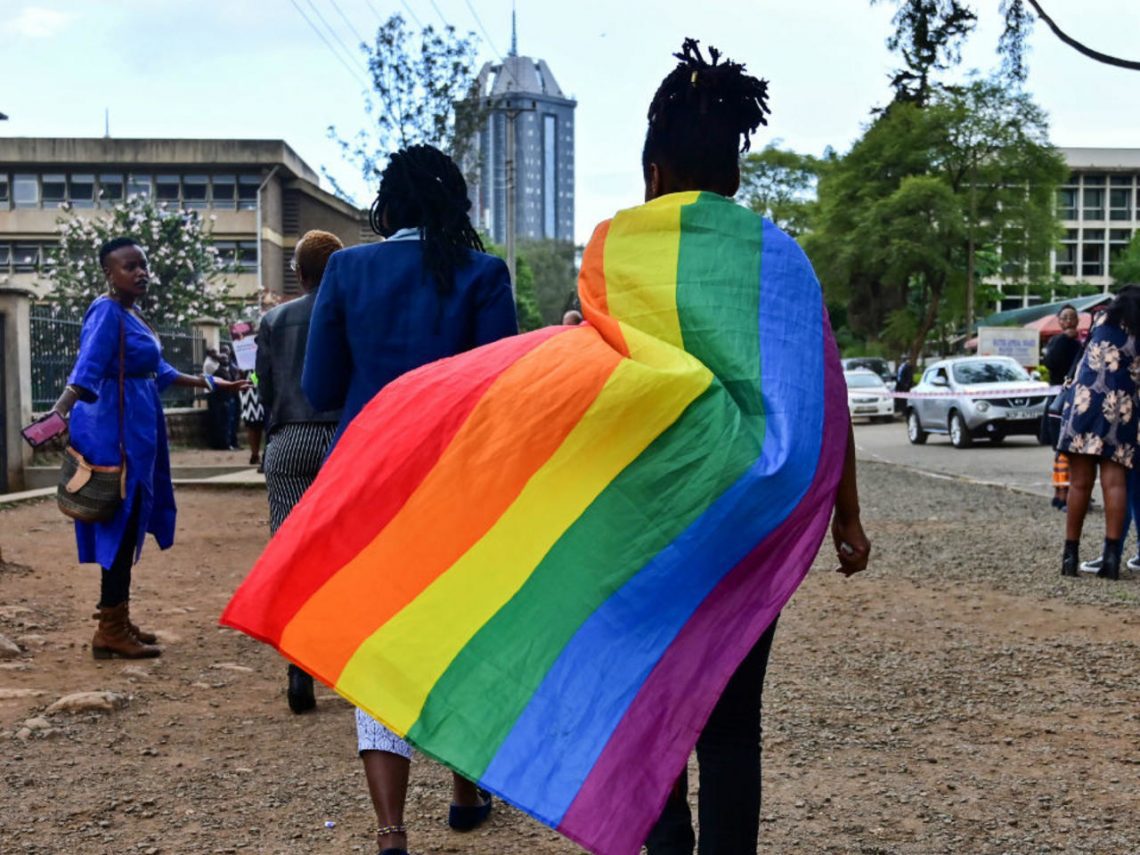
ANALYSIS Dr Aminata Mbaye 03 June 2022
On December 25th, 2021, the Senegalese parliament rejected the proposition from a religious collective aiming to further criminalize same-sex sexuality in Senegal. The Senegalese parliament explained this decision by emphasising that the Senegalese legislation already mandates the punishment of same-sex practices. Furthermore, the Senegalese president Macky Sall assured that the parliament’s assessment of this request did not indicate a change of perspective toward same-sex sexuality that will continue to be legally punished.
The proposition to further criminalize same-sex practices was initiated by the collective And samm Jikko Yi (in Wolof “together for the preservation of our values”) which regroups 125 religious associations and is coordinated by the imam Ababacar Mboup. More specifically, in the proposal, the members of And samm Jikko Yi wanted to modify the article 319, that already criminalized same-sex practices in the Senegalese Penal code. Instead of imprisoning those who are accused of same-sex practices from 1 to 5 years as in the current legal text, the association demanded 5 to 10 years of prison and a fine of up to around 6473 Euros, instead of the 2285 Euros in the actual legal text. Furthermore, while the current Senegalese Penal code mentions “unproper or unnatural act with a person of the same sex”, the association openly refers to and therefore targets Gay, Lesbian, Bisexual, Trans and other LGBTQ+ communities.
However, the decision taken by the Senegalese government on the 21st of December has not stopped the endeavour of the association And samm jikko yi to mobilize the population against what they defined as ‘Un-african’ sexual practices which go against the traditional and religious-moral values of the Senegalese society. The association particularly emphasises the fact that Senegal is at around 95% Muslim. During their last protest to date, that took place in Senegal Capital’s city Dakar, at the end of February 2022, thousands of demonstrators reunited to fight against the so-called Westernization of the country.
This type of mobilization against same-sex practices and LGBTQ+ people are not new. In the past, such standoffs always occurred during the electoral period. Nowadays, we observed a similar dynamic, as the next Senegalese parliamentary election will take place in July 2022. Some Senegalese experts consider that And samm Jikko Yi instrumentalizes the question of homosexuality to obtain a political representation in the Senegalese parliament.
This protest against homosexuality has serious implications for the life and security of the LGBTQ+ community in Senegal. On its website, the association Free Senegal details the discriminations that many LGBTQ+ people endured in Senegal. Material examples of such prejudices are arbitrary arrestation and physical violence. In the case of women, forced marriage and corrective rape are also considered. Due to homophobic violence, many LGBTQ+ have problems to find a job and access healthcare facilities. This precarity was particularly exacerbated during the COVID-19 pandemic.
However, while it is important to highlight the insecurity and inequality affecting the LGBTQ+ community in Senegal and other parts of the continent, it is also important to underline that not the entire Senegalese or African population is homophobic.
In fact, many Senegalese people emphasise the fact that gender non-conform identities and practices have always existed in the country and are part of the Senegalese society. Indeed, the condemnation of same-sex practices has been primary introduced by colonial laws. Concerning this, during the past years there have been more and more attempts to bring visibility on these issues and effort to decolonize the discourses on same-sex practices in Senegal and more generally Africa.
References
Patrick Awondo and others, ‘Homophobic Africa? Toward A More Nuanced View’ [2012] 55(3) African Studies Review 145-168
Fatou Camara, ‘Ce délit qui nous vient d’ailleurs: l’homosexualité dans le Code pénal du Sénégal’ [2007] 34(3) Psychopathologie africaine 317-342
Jason L. Ferguson, ‘“There Is an Eye on Us”: International Imitation, Popular Representation, and the Regulation of Homosexuality in Senegal’ [2021] 86(4) American Sociological Review 700-727
Aminata Cécile Mbaye, ‘Queer political subjectivities in Senegal: gaining a voice within new religious landscapes of belonging’ [2018] 10(3) Critical African Studies 301-314
Aminata Cécile Mbaye, ‘The spectacle of the ‘Other’: Media representations of same-sex sexuality in Senegal'[2021] 24(1-2) Sexualities 13-28
Babacar M’baye, ‘The Origins of Senegalese Homophobia: Discourses on Homosexuals and Transgender People in Colonial and Postcolonial Senegal’ [2013] 56(2) African Studies Review 109-128
Ryan Richard Thoreson, ‘Troubling the waters of a ‘wave of homophobia’: Political economies of anti-queer animus in sub-Saharan Africa’ [2014] 17(1-2) Sexualities 23-42
One reply on “Same-Sex Sexuality in Senegal”
Let africa beautiful men be gay please 🙏🏼